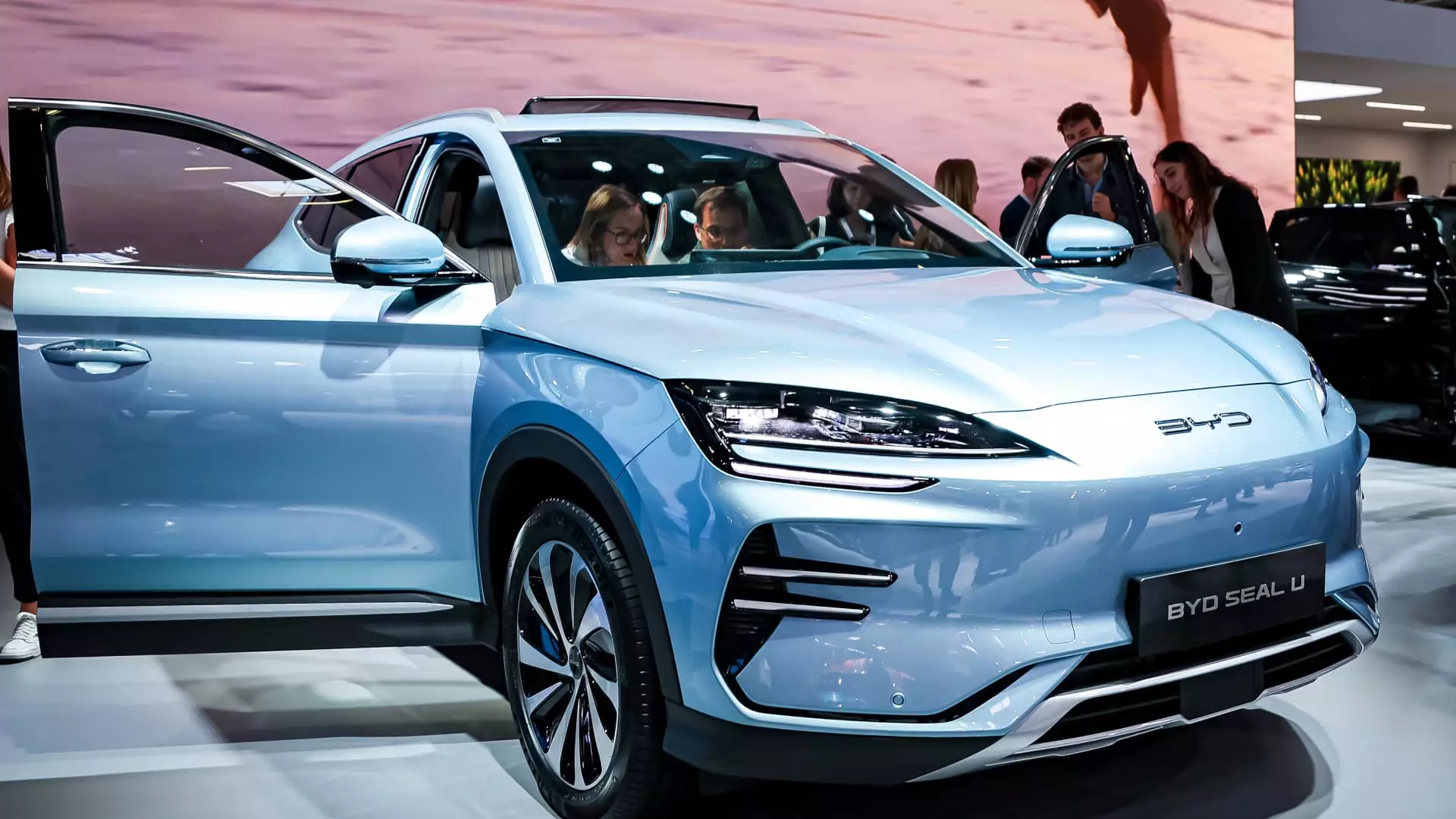The Chinese electric vehicle manufacturer BYD is poised to surpass Tesla in battery electric vehicle sales this year, according to a recent report by Counterpoint Research. This shift highlights the ever-changing dynamics of the global EV market, with BYD’s market share expected to experience a significant surge. In the second quarter, BYD’s battery EV sales increased by almost 21% year-on-year to a total of 426,039 units, outperforming Tesla whose deliveries dropped by 4.8% to 443,956 vehicles during the same period.
Production and Market Dominance
In terms of total production, BYD manufactured over 3 million units last year, surpassing Tesla’s production of 1.84 million vehicles for the second consecutive year. However, when considering only battery-only passenger cars and hybrids, BYD produced 1.6 million and 1.4 million units respectively, placing Tesla ahead in terms of BEV production. Despite losing the top EV vendor position to Tesla in the first quarter, BYD continues to lead the BEV market in China, which remains a dominant force in the industry.
China is expected to maintain more than 50% market share of global BEV sales until 2027, with Chinese BEV sales projected to surpass the combined sales of North America and Europe by 2030. However, the European Union recently announced additional tariffs on Chinese EV firms in an effort to protect the local industry from the competitive threat posed by lower-priced Chinese imports. BYD, along with other Chinese automakers, will face additional duties ranging from 17.4% to 38.1%, on top of the existing 10% duty imposed on imported EVs.
Counterpoint Research’s associate director Liz Lee believes that these tariffs could push Chinese automakers towards emerging markets such as the Middle East, Africa, Latin America, Southeast Asia, Australia, and New Zealand. This strategic shift may help Chinese EV manufacturers offset the impact of the EU tariffs and expand their global footprint. Moving forward, the growth of the EV market will be supported by initiatives aimed at enhancing cost-efficiency and affordability for both EVs and EV batteries.
The rise of BYD in the battery electric vehicle sector serves as a clear indication of the competitive landscape within the EV industry. As China continues to dominate the market and expand its global presence, challenges such as trade tariffs and international competition will shape the future trajectory of the EV market. The evolution of this sector underscores the importance of innovation, strategic decision-making, and adaptability in an increasingly complex and dynamic industry.


Leave a Reply